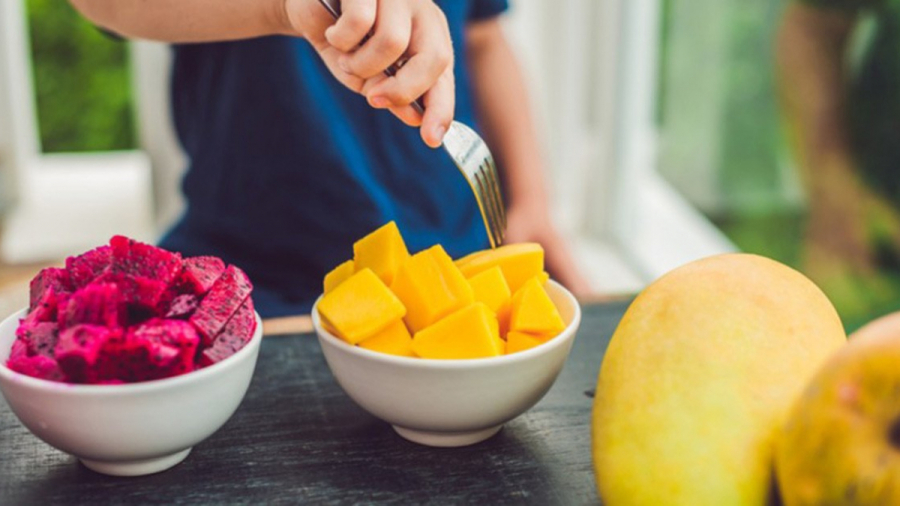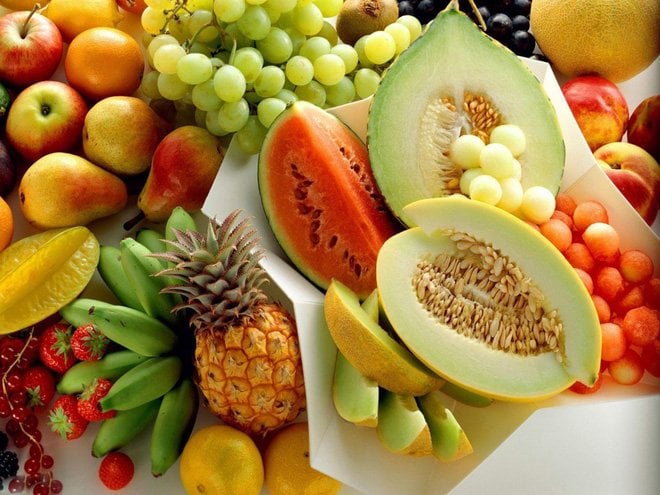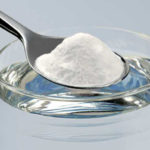Fruits are one of the healthy foods that are great for your health. Many people are concerned about the best time to eat fruits.
Eating fruits before meals – is it good?
In reality, right after the food enters the stomach, the stomach produces a large amount of acid, reducing the pH level in the stomach to a very low level (pH=1-3). In this environment, more than 99.9% of bacteria are killed (except for some bacteria such as Helicobacter pylori – the cause of gastric ulcers that can tolerate this acidic environment). This is a protective mechanism that humans have evolved to increase chances of survival because food is always a source of various bacteria that can be harmful to the body. Moreover, having an acidic environment helps to digest food into simpler substances that are easily absorbed in the intestines later on.

From this point, it can be clearly seen that the normal digestive system does not allow any fermentation process to occur in the stomach due to eating fruits. The reason given for advising to eat fruits before meals is completely illogical. So, when is the best time to eat fruits?
Healthy ways to eat fruits
Amount of fruits to eat: Fruits are a source of vitamins, minerals, fiber, and antioxidants that are good for health. According to many nutritional studies, fruits and vegetables should make up at least half of your food intake.
Criteria for choosing fruits: “In season”. When fruits are in season, they have high quality and affordable prices. All fruits are good and nutritious, and the choice of which fruit to eat depends on each person’s taste and eating habits. Suggestions: In the summer, you can choose fruits that are high in water content, vitamin C, carotene, and some minerals, with vibrant colors but less sweetness, such as oranges, apples, and guava.

It is best to eat fruits right after peeling them: While fruits provide many nutrients to the body, if they are left for too long, they will lose their freshness, aroma, and decrease in nutritional content. Therefore, it is best to eat fruits immediately after peeling. If you have to prepare them in advance, you can soak them in a light saltwater solution to maintain the amount of vitamins, minerals, and prevent discoloration after peeling for too long.
Some fruits should not be eaten on an empty stomach: Persimmons, tomatoes, bananas, oranges, lychees, and some unripe fruits can be harmful to your stomach.
Healthy fruits for your wellbeing
Eating fruits adds fiber, which is good for your health. You can eat fruits for 3 days to detoxify, help your skin look rosy, and lose weight. However, people with low blood pressure or poor health should not follow this method.

Some fruits with health benefits:
– Kiwi: contains a lot of vitamins and minerals such as potassium, magnesium, vitamin E, and fiber. The vitamin C content in kiwi is twice as high as that in oranges.
– Apple: eating it every day will help reduce the risk of aging colon and heart disease. Apples have antioxidant and high flavonoid properties that enhance the activity of vitamin C.
– Strawberries: these are the fruits with the highest antioxidant content among all fruits. They help us prevent cancer and fight against free radicals that can clog our blood vessels.
– Orange: eating 2-4 oranges a day will supplement vitamin C, prevent flu, lower cholesterol levels in the blood, and reduce the risk of colon cancer.
– Watermelon: it contains 92% water, which helps to cool down and quench thirst.
– Guava: people often think that oranges contain the most vitamin C, but in fact, guava is the fruit with the highest vitamin C content.
How to Effectively Treat Fishbone Issues at Home
Everyone loves feasting on the deliciousness of fish during the holidays. But, unfortunately, choking on fish bones is an unavoidable issue that may lead to devastating consequences if left unattended for a prolonged period. Let’s see how Dien May Xanh can help us out when fish bones get stuck in our throat.
Uncovering the Benefits of Eye Massage: 3 Unexpected Effects
Do you want to know how to protect your eyes and eyesight with simple massage techniques? Recent research has revealed that daily eye massage can provide a number of unexpected benefits to those looking to maintain healthy eyes and vision. Keep reading to find out more about the effects of eye massage and some simple exercises!



































